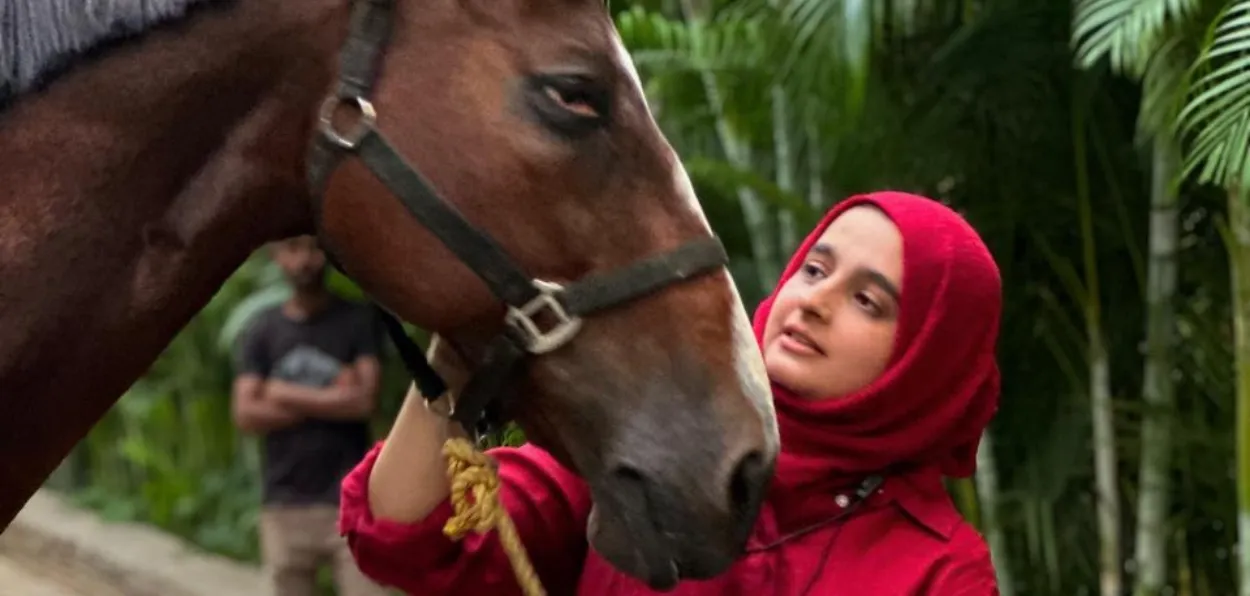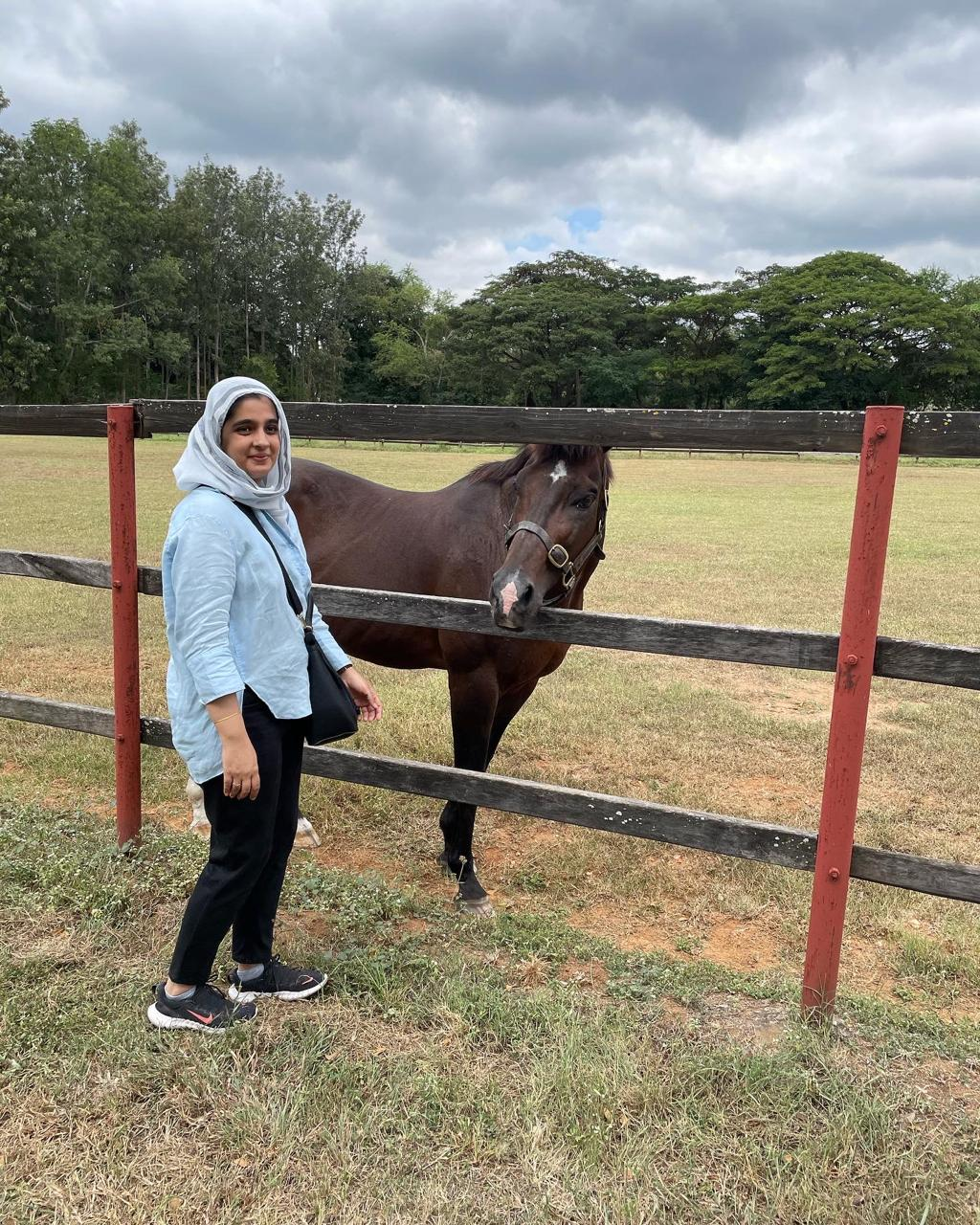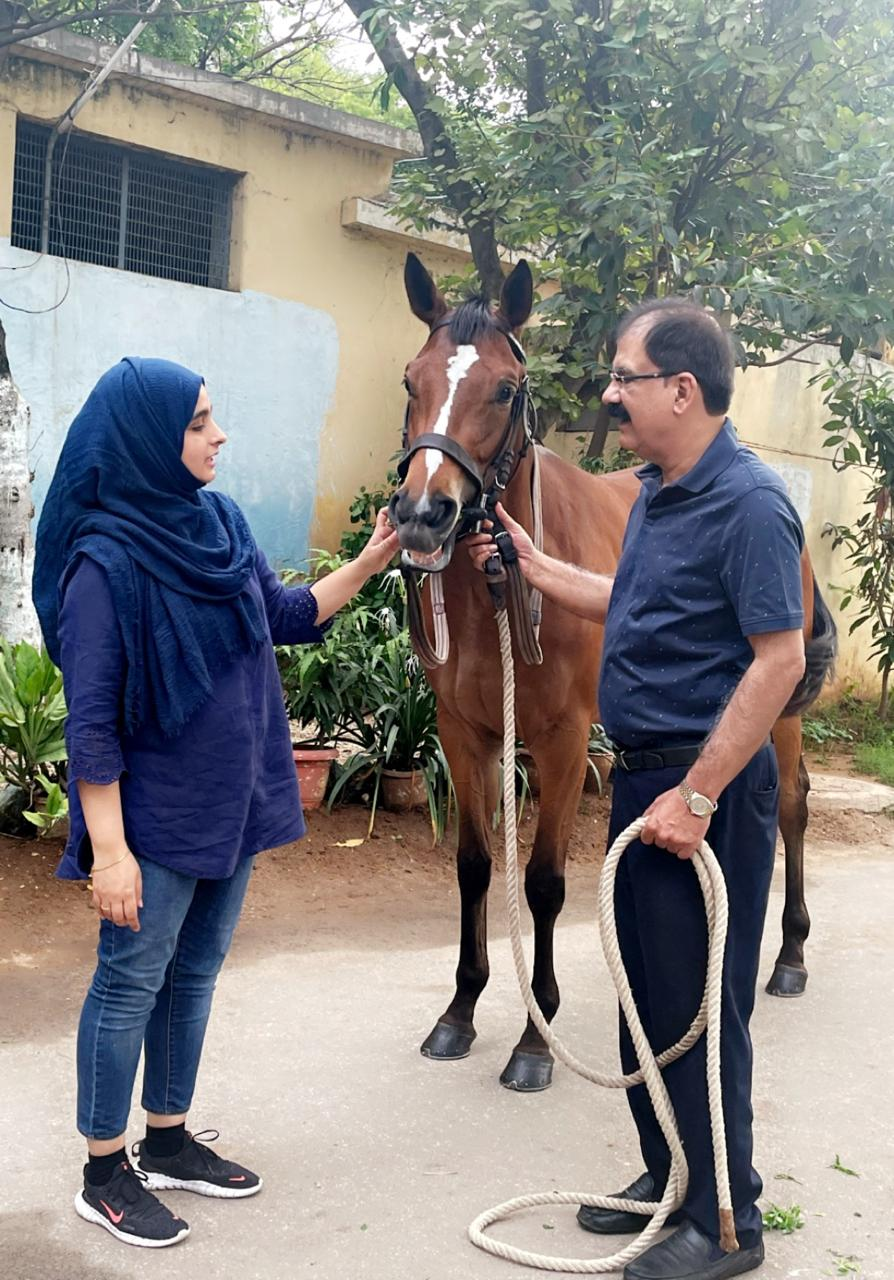
Ratna G Chotrani/Hyderabad
There’s no denying that everyone needs a bit of a mental health check sometimes —and for more than a few individuals, therapy with horses is the key to peace. Trot and Talk, a Hyderabad-based organisation started by this young Horse rider and Equestrian that trains racehorses to provide therapy to children and youth with disabilities or mental health issues.
The initiative provides a home to thousands of retired racehorses while improving the lives of those who might not have the means and funding to seek professional help.
If you’ve never heard of Equine Assisted Therapy, you’re not alone. Succinctly, it’s a form of experiential therapy that involves a horse and a clinically trained psychologist working together to stimulate psychotherapeutic benefits for the client.
Nimrah Mirza, daughter of an entrepreneur, Polo Player, and horse owner Adil Mirza, is the owner of Trot and Talk. Nimrah says, “I was born to the rhythm of horseback, as my father was a Polo player and we had horses at home. My first moments with a horse were when I was very young, and my father not only rode horses but owned them. The Trot of the horse was common to me."
Years later, Nimrah’s heart still beats to the gait of a horse, and she wants to share that life-changing experience with the world. She not only treats children and the elderly for mental health, but also instils love for horses among young children and women in particular, who get inspired seeing her.
 Nimrah Mirza with one of her horses
Nimrah Mirza with one of her horses
Nimrah says she is obviously a horse person. I have been involved with horses as they are part of me at the riding club where she goes horse riding, so I have a big love and passion for horses.
With a Master's Degree in psychology, certification in counselling, and internationally certified EFT (Emotional Freedom Technique) practitioner, Nimrah Mirza is also certified in Equine–Assisted Learning (EAL) – its therapeutic and developmental approach that combines the presence of horses to support humans in healing, she says.
Nimrah says she was drawn towards exploring how she could help people heal and grow, as she herself suffered a mild bout of anxiety; horses brought her solace and calmness.
There's a special bond between horses and humans, Nimrah notes. “It's a complex relationship focused on trust,” this young rider says. “We are the fragile one out of the two. When you're riding, it's about them trusting and respecting you just as much as you trust and respect them.” She adds, “The experience demands you to be so present that your thinking mind is freed up from the anxiety and trauma you're focused on. You are forced to be present in the moment instead, and that separation from the difficult feelings can lead you to calmness,” she explains.
 Nimrah Mirza with her father
Nimrah Mirza with her father
After her Master's, her work in a hospital and counselling centre gave her a very valuable experience, but it was with horses that she discovered a deeper, more natural way to well-being. This blend of psychology and equestrian activities inspires her to create “Trot and Talk’ - an initiative to spread awareness about how horses can positively influence the psychological, emotional and physical health of a person. Horses, she says, are like companions who teach, heal and connect with humans.
Nimrah conducts workshops to spread awareness about how horses can support humans. These workshops are fun and interaction-based.
She works with adults suffering from stress, anxiety, or life changes; children who need safe spaces, individuals with physical challenges and groups and communities.
How does her therapy work?
Petting a horse, feeding it or taking a horse for a walk or ride. Participants get a feel of self-awareness. First one in Hyderabad to adapt to this learning called Equine Assisted learning therapy, Nimrah now conducts workshops regularly.
“Horses, she explains, have an acute awareness of subtle changes in their surroundings, including human body language, tone of voice, and emotional states. This sensitivity makes them ideal for equine-assisted therapy, helping individuals become more emotionally aware and grounded."
Today, Nimrah gets adults with mental health issues as well as clients, besides severely neurodivergent children, from ages 2 to 70. "Non-verbal children who are scared of horses and unable to make eye contact come in, and eventually end up hugging horses for hours and even smile at me and ask – ‘Good?' as they brush the horses," she says.
"At times, children stop stemming (repeating movements or sounds, a common trait in autism) and turn quiet. Parents are amazed as there is no real explanation for why it happens."
Nimrah says she has noticed how children have become more expressive and confident. “Equine therapy is not the same as being around horses. There are two kinds: hippo therapy, which involves horse riding, and horse-assisted therapy, says Nimrah. "Everything a horse does has a rhythm, whether it's galloping, just trotting or even swishing its tail. That predictable rhythm can be calming and therapeutic. Depending on the client's needs, horses that challenge or validate their boundaries are chosen."
Asked whether the therapy works, she adds, “What if your child needs therapy and goes on to see a psychologist in a four white wall environment, versus these lovely equestrian centres in the stables with horses? We believe that the therapy is 10 times better than traditional methods.”
